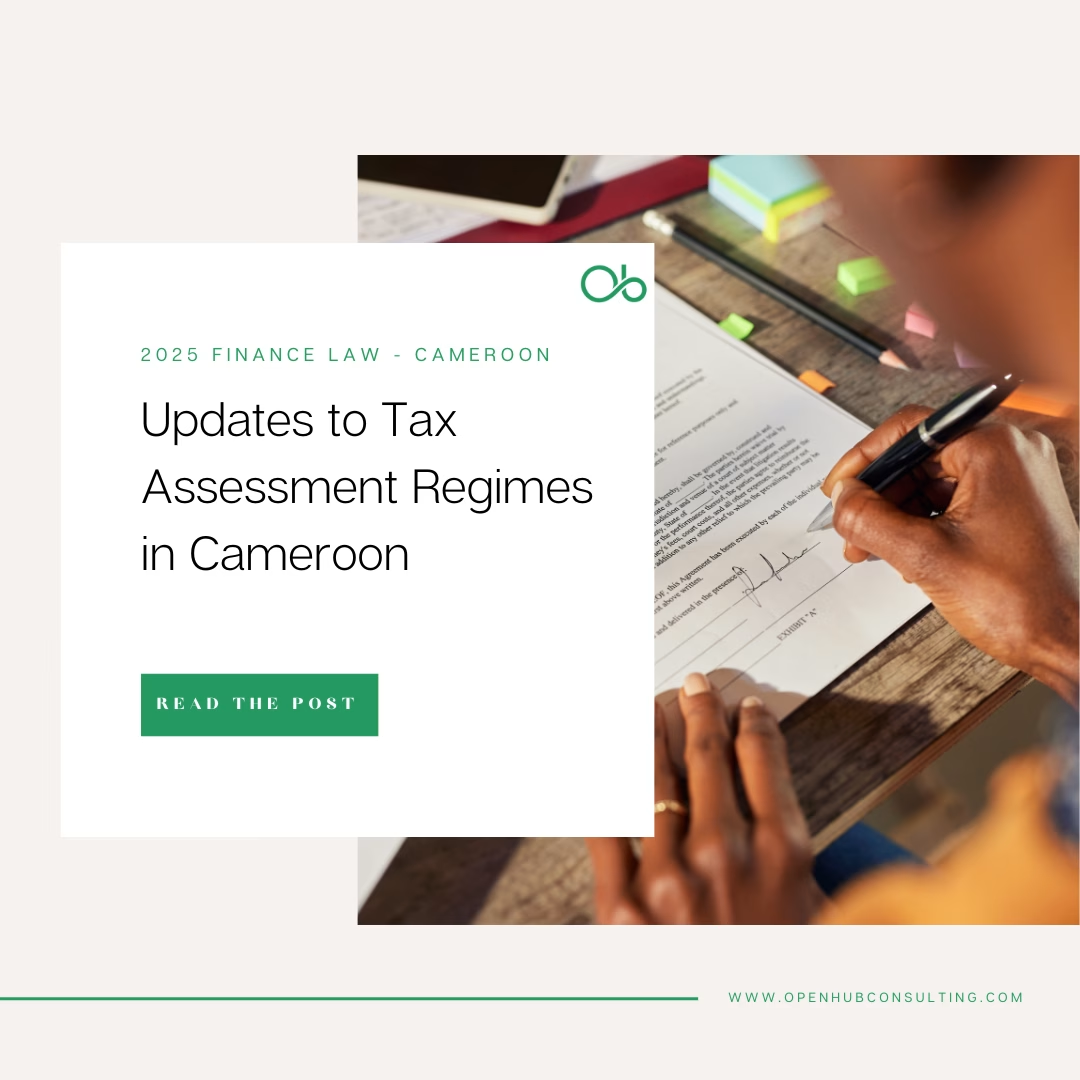The 2025 Finance Law introduces adjustments to tax assessment regimes for businesses and individuals in Cameroon. These changes primarily impact sole proprietorships and legal persons, emphasizing clearer criteria for transitioning to the actual earnings taxation system and providing new incentives for investments. Let’s explore the updates and their implications.
1. What’s New in the 2025 Finance Law?
The actual earnings taxation system is now applicable to:
- Sole proprietorship and legal persons with an annual turnover of CFAF 50 million and above.
- Taxpayers with validated investment programs exceeding CFAF 100 million, upon approval by the Director-General of Taxation.
This is an enhancement of the provisions in the 2024 General Tax Code, which also sets CFAF 50 million as the turnover threshold for entering the actual earnings system but lacked provisions for incentivizing large investmentsLaw on Local TaxationLaw on Local Taxation.
If this article helped you, you can support our work at OpenHub.
Support OpenHub Digital2. What Changed in the Tax Assessment Regimes?
2024 General Tax Code:
- The actual earnings system was applied solely based on turnover thresholds:
- Below CFAF 10 million: Flat rate taxation system.
- Between CFAF 10 million and 50 million: Simplified taxation system.
- Above CFAF 50 million: Actual earnings taxation systemLaw on Local TaxationLaw on Local Taxation.
2025 Finance Law:
- Expands eligibility for the actual earnings system to businesses with significant investment projects exceeding CFAF 100 million.
- Introduces discretionary approval by the Director-General of Taxation, promoting flexibility in tax policy to encourage investmentsLaw on Local TaxationLaw on Local Taxation.
3. Why These Changes Matter
The addition of investment program incentives aligns with Cameroon’s economic growth goals. By lowering barriers for businesses with significant capital commitments, the government aims to:
- Foster large-scale projects that contribute to national development.
- Enhance compliance and increase tax revenue from larger enterprises.
4. Practical Implications for Businesses
- Businesses with Turnover Below CFAF 50 Million: Continue under the simplified tax system or flat rate taxation.
- Businesses with Turnover of CFAF 50 Million and Above: Automatically assessed under the actual earnings taxation system, simplifying compliance.
- Businesses with Investments Over CFAF 100 Million: Eligible for the actual earnings system even if turnover is below CFAF 50 million, provided the project is validated.
5. Example Scenario
Business A:
- Turnover: CFAF 30 million.
- Investment Program: CFAF 120 million, validated by tax authorities.
Tax Treatment:
- Although turnover is below CFAF 50 million, Business A qualifies for the actual earnings taxation system under the new investment incentive provision.
6. Compliance Tips
- Track Turnover Accurately: Ensure proper classification under the applicable tax system.
- Plan Investments Strategically: Businesses planning significant projects should consult tax professionals to leverage this incentive.
7. Read Also
- Key Updates in the 2025 Finance Law for Professional Income and Road Transport Operators
- Real Estate Income Tax in Cameroon: Key Updates in the 2025 Finance Law
- How the 2025 Finance Law Impacts Tax for Music Artists in Cameroon
Get Help Navigating These Changes
OpenHub Consulting provides tailored Small Business Tax Management Services to help you stay compliant and take advantage of tax incentives. Learn more here.
From Insight to Implementation
Going through the administrative and legal landscape in Cameroon requires more than just information—it requires a grounded local partner. At OpenHub Consulting, we specialize in helping the diaspora and international investors turn their business visions into compliant, operational realities.
If you are ready to move forward, our team is prepared to manage your registration and compliance from start to finish.
Start Your Company Incorporation →
